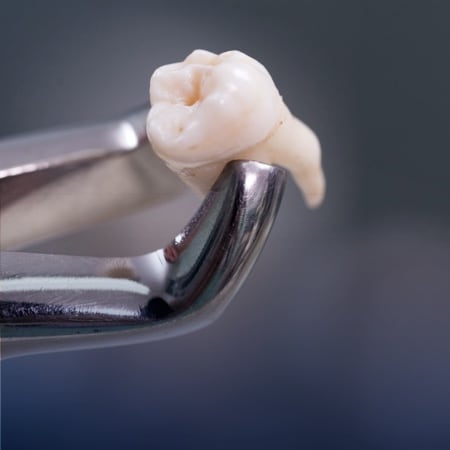On both sides of your face, the temporomandibular joints (TMJ) collaborate with muscles and ligaments to facilitate essential functions like chewing, speaking, and jaw movement. Problems with these joints and related facial nerves and muscles are known as temporomandibular joint disorder (TMD).
Dental work, while important for maintaining oral health, can sometimes strain these joints, particularly when procedures require extended periods with the mouth open. Fortunately, experienced dental surgeons can help mitigate these risks, making sure that your dental health journey is both effective and comfortable.
What Is TMJ?
The temporomandibular joint (TMJ) acts like a sliding hinge, connecting your jawbone to your skull. TMJ disorders, often referred to as TMD, are conditions that can cause pain in your jaw joint and in the muscles that control jaw movement.
Common symptoms include:
- Pain or tenderness in the jaw
- Aching around the ear
- Difficulty chewing
- Locking of the joint
For those affected, relief may sometimes feel elusive.
What Causes TMJ Disorders?
A variety of issues can lead to TMJ disorders. Stress, teeth grinding, and arthritis are common culprits. Additionally, structural issues such as misaligned teeth or bite problems can exacerbate the situation. For some people, the condition might arise from the prolonged tension on their jaw muscles, often due to lifestyle habits or underlying health issues.
In some cases, dental work can cause or worsen TMJ disorders. However, this doesn’t mean you should avoid necessary dental care.
Dental Procedures & TMJ
Temporary jaw discomfort after dental work is not uncommon. This occurs because the procedures require patients to maintain an open mouth for long periods, placing additional strain on the TMJ. This strain can lead to a flare-up, especially in individuals with pre-existing conditions or vulnerabilities related to TMJ disorders.
Crowns, implants, and fillings are essential for dental health but can occasionally contribute to TMJ symptoms if not executed with precision. Misalignment in these restorations can disrupt the natural bite pattern, leading to discomfort. However, skilled practitioners can prevent this by making sure that restorations fit seamlessly and maintain the integrity of the bite.
You should discuss any concerns about TMJ with their dental provider. By communicating openly and choosing experienced professionals, you can significantly reduce the risk of exacerbating TMJ disorders through dental work.
It’s also important to communicate any TMJ history with your dentist and oral surgeon before undergoing procedures. A collaborative approach can help mitigate risk, minimizing any potential discomfort. Proactive measures can be taken to support jaw health during dental appointments when both patient and professional are informed.
Orthodontic Dental Work
Orthodontics, while important for correcting misaligned teeth, can potentially impact TMJ. Shifting teeth into new positions requires precise adjustments that consider the entire facial structure.
Orthodontic treatments such as braces or Invisalign can influence jaw alignment, potentially triggering symptoms if not administered with a full understanding of the patient’s unique anatomy.
Patients should be aware that while orthodontics can enhance dental function and aesthetics, they must be approached with care.
Consulting with orthodontists who prioritize comprehensive assessments of the jaw and facial structure helps make sure that treatments are holistic, reducing the possibility of TMJ complications.
Treatments for TMJ
For those experiencing TMJ symptoms, numerous treatment options are available. Therapeutic exercises, stress management, and lifestyle adjustments can often bring relief. Dental interventions such as nightguards can protect against grinding, while physical therapy may provide additional support for muscle relaxation.
In cases where dental work contributed to TMJ symptoms, restorative procedures may be necessary to correct bite alignment. Consulting with your oral surgeon can help determine tailored treatment plans.
Orthognathic Jaw Surgery
Orthognathic jaw surgery can help correct severe or complex jaw misalignment, where orthodontics and other conservative treatments may be insufficient. This procedure is especially beneficial for individuals experiencing difficulties with chewing, speech, or chronic TMJ pain due to jaw misalignment.
Through consultations and 3D imaging technology, CVOS surgeons can plan corrective surgery. Orthognathic jaw surgery can address the root causes of jaw discomfort and enhance overall aesthetics and oral functionality.
Preventing TMJ
While treatment options are available, prevention tactics help manage TMJ disorders. Regular dental check-ups can help identify potential issues early. Stress reduction techniques, such as meditation or deep breathing exercises, can also alleviate jaw tension.
It is important to be mindful of habits like excessive gum chewing or nail-biting, which strain the jaw. Implementing a balanced lifestyle that supports joint health and well-being is beneficial for both the prevention and management of TMJ disorders.

Oral Surgeons vs. Dentists
General dentists play a pivotal role in maintaining oral health by focusing on preventive care and routine check-ups, which are essential in detecting dental issues early on.
Oral surgeons undergo extensive training to address complex dental and facial conditions, providing care for TMJ disorders. This specialized knowledge enables them to deliver comprehensive solutions for patients with unique needs.
At CVOS Oral Surgery, our team is dedicated to patient care through continued education and research. We prioritize the comfort and well-being of our patients and understand the concerns surrounding TMJ and the impact dental work can have on these conditions.
By prioritizing communication and building trust, we aim to alleviate anxiety and provide a positive experience for all.
Schedule Your Consultation
At CVOS Oral Surgery, we’re here to support your dental needs, offering personalized care and solutions. If you’re experiencing TMJ symptoms or have concerns about dental work, schedule a consultation with us today.
By taking action and seeking guidance, you’re prioritizing your health and well-being. Contact us today and discover how we can help improve your oral health today.










